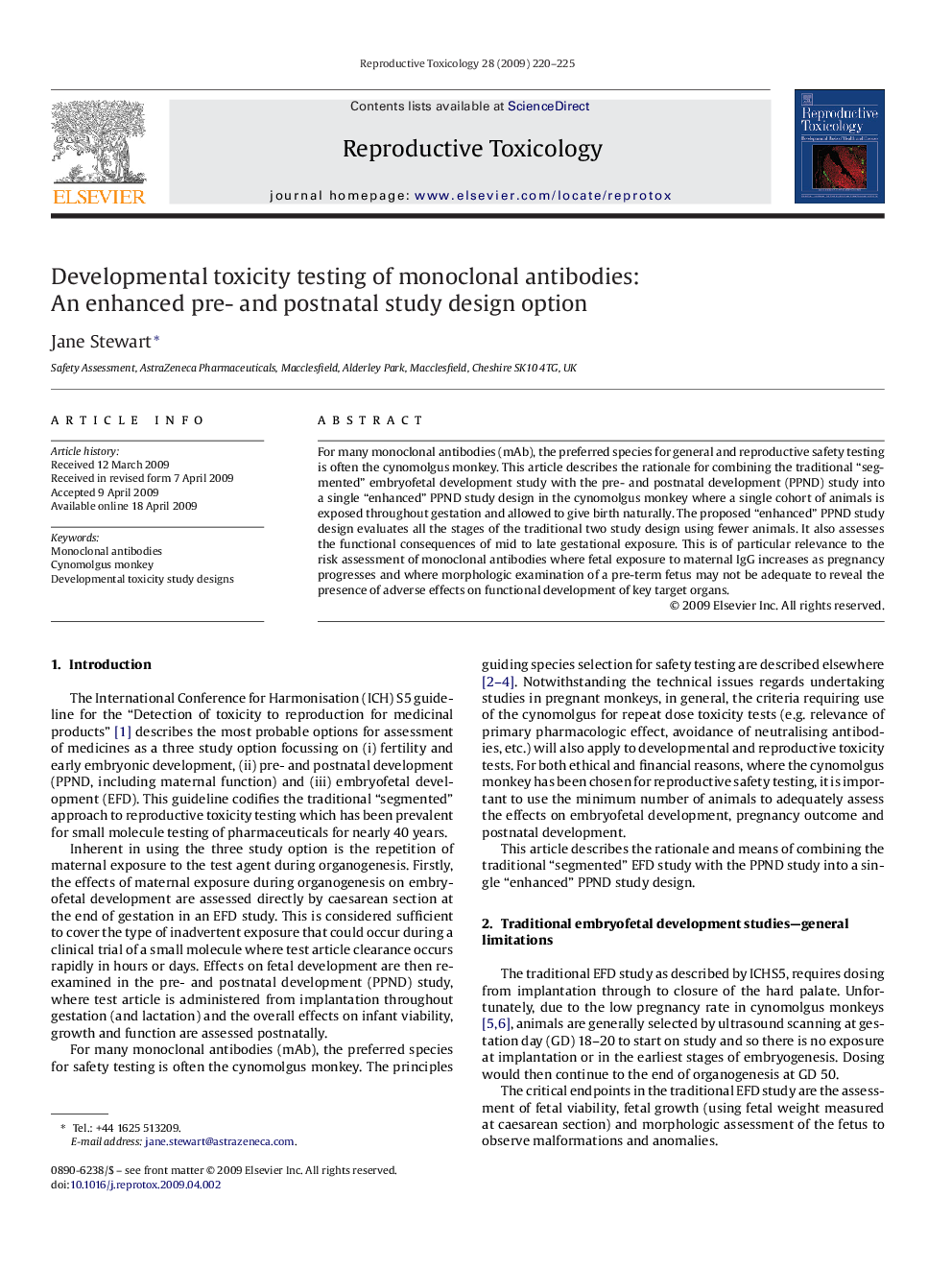| Article ID | Journal | Published Year | Pages | File Type |
|---|---|---|---|---|
| 2594952 | Reproductive Toxicology | 2009 | 6 Pages |
For many monoclonal antibodies (mAb), the preferred species for general and reproductive safety testing is often the cynomolgus monkey. This article describes the rationale for combining the traditional “segmented” embryofetal development study with the pre- and postnatal development (PPND) study into a single “enhanced” PPND study design in the cynomolgus monkey where a single cohort of animals is exposed throughout gestation and allowed to give birth naturally. The proposed “enhanced” PPND study design evaluates all the stages of the traditional two study design using fewer animals. It also assesses the functional consequences of mid to late gestational exposure. This is of particular relevance to the risk assessment of monoclonal antibodies where fetal exposure to maternal IgG increases as pregnancy progresses and where morphologic examination of a pre-term fetus may not be adequate to reveal the presence of adverse effects on functional development of key target organs.
